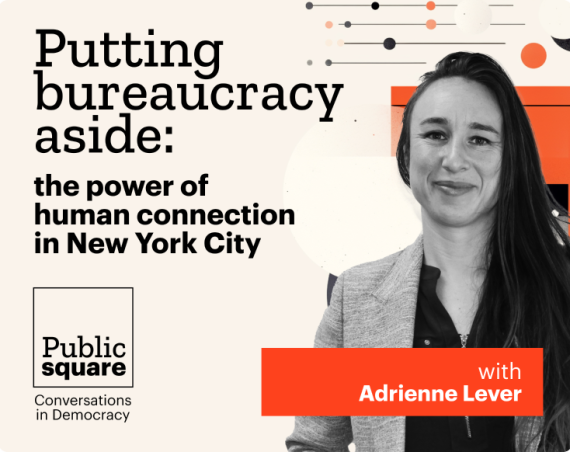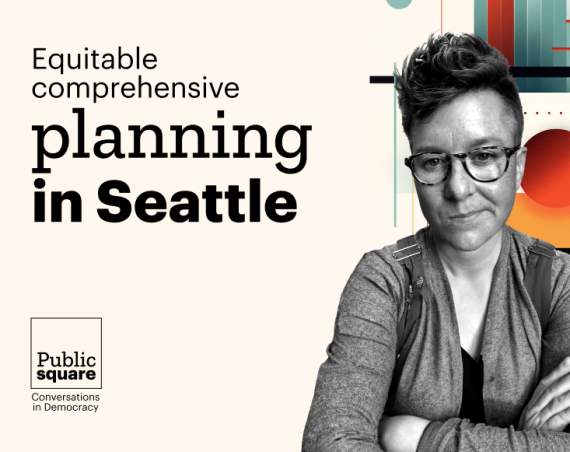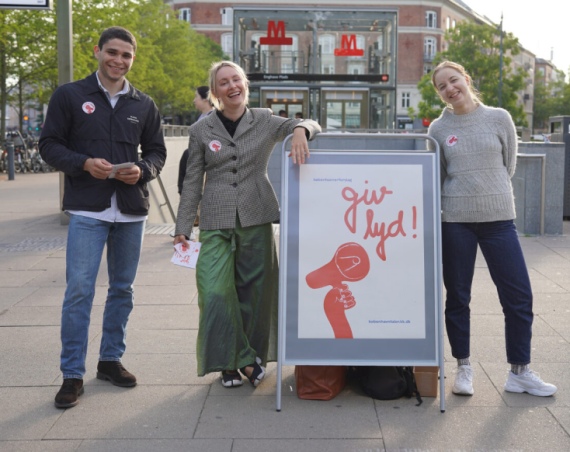Citizens’ assemblies come all the way from Ancient Greece. Their original purpose was to give all citizens a say in the decision-making process and to reach consensus through deliberation. The rules may have evolved since 6th century BC, but the aim remains the same: to facilitate in-depth deliberation between a randomly selected group of citizens and to aid decision-making.
In recent years, they’ve received growing attention as a valuable, in-depth way of organising community engagement. The 2016 Irish Citizens’ Assembly on same-sex marriage and abortion or the UK citizens’ assembly for climate earlier this year have shown that citizens’ assemblies can help unlock sensitive topics, create consensus and help innovative solutions emerge. So far, the most famous examples have been taking place at a national level. What can councils learn from these examples, and how can they translate them to a local level? Here are the main takeaways from our webinar with Sarah Allen, Head of Engagement at Involve UK, and Graham Smith, Professor of Politics and Director of the Centre for the Study of Democracy of the University of Westminster.
1. What can they bring on a local scale?
Forget about the big, national examples: Professor Graham Smith shared that some of the most compelling instances of citizens’ assemblies can be found on a local scale. Since coming to the UK in 2016, they have been implemented by councils on topics ranging from mobility to social care, climate or hate crime. On that level, citizens’ assemblies can bring communities together and help source innovative solutions.
The Waltham Forest citizens’ assembly is a fantastic example of what can be achieved on a local level. The council launched an assembly in early 2020 to address hate crimes within the community. The participants heard information from both experts and residents and deliberated over the course of 5 days. The recommendations that they made have all been followed by the council and are now being implemented in the local legislation. As a participant of the Waltham Forest’s assembly wisely said: “Citizens’ assemblies are a way for politicians to effectively gage what is useful and acceptable and what would be trusted by the publics that they’re serving“.
2. What is a good topic for a citizens’ assembly?
Sarah Allen and Professor Graham Smith were both adamant on one point: not every issue needs to be met with an assembly!
If you’re thinking about citizen assemblies, you’re looking for a topic where you want to hear from a representative sample. Before deciding to run an assembly, it’s essential to have a clear end goal in mind. If the project aims to collect information from citizens and hear from a specific set of people, an assembly isn’t the right format. A citizens’ assembly is about giving people information, and it works for topics where people need to learn and discuss to unlock complex issues, like climate change or social care.
Graham Smith suggests starting from a simple set of questions: “Leaders, what is the hardest decision you’re facing? What are the really tough things you haven’t been able to deal with?”. Whatever that issue is, Citizen Assemblies can maybe help with the answer.
3. What are the best practices when setting up a citizens’ assembly?
Sarah Allen identifies a set of 6 best practices to run a citizen assembly:
- Don’t jump on the process: perhaps a citizen assembly isn’t what you need! Think about your purpose and get really clear on your purpose.
- Be committed to using the results, not just wanting to be seen to run one. There’s nothing worse than running an engagement project to tick a box. Consulting residents without taking their input seriously harms trust and increases defiance in the long run.
- Define how the recommendations fit into the decision-making process, and who is responsible for taking the recommendations forward. In other words, who are the relevant stakeholders to involve, and who do you need buy-in from? If the assembly is about mobility, you might have to cooperate with non-public actors or local organisations to implement the results – so make sure they’re included from the start.
- Don’t assume prior knowledge of the participants. The topics discussed in citizens’ assemblies are often complex, and it is crucial to make sure the conversations start from a strong base. In the citizens’ assembly for climate, the first sessions started by defining climate change and agreeing on what “carbon neutral” could mean.
- Think about crowdsourcing before going into the process. Not everyone in the community can take part in the deliberations, but you can ask residents to contribute questions, desired outcomes and information.
- Remember that the process isn’t the end and isn’t the solution in itself. Once the recommendations have been made and adopted, there is still a long road ahead in implementing them.
4. How much does it cost?
Now, this is the elephant in the room. Cost is of course always going to be an issue for smaller councils looking to set up citizens’ assemblies. The cost is very much dependent on the size of the operations – it can range from several hundreds of thousands of pounds for a national consultation, to a dozen of thousands for a smaller-scale one. Sarah Allen shared that there are four main cost factors to consider:
- The venue: some councils might have a space to accomodate the deliberations, while some others might have to rent out a space.
- Accomodation: on a national scale, participants have to come from all over the country and require accomodation. For a local council, participants might be able to make a day trip.
- Compensation: for the sample of citizens to be truly representative, it’s very important to compensate participants for their time. It’s up to each council to decide what that compensation will be, but it’s stongly advised to at least make up for eventual lost wages.
- Facilitation: moderating debates and facilitating discussions requires real expertise. Some councils decide to work with professional facilitators to ensure the conversation goes smoothly.





